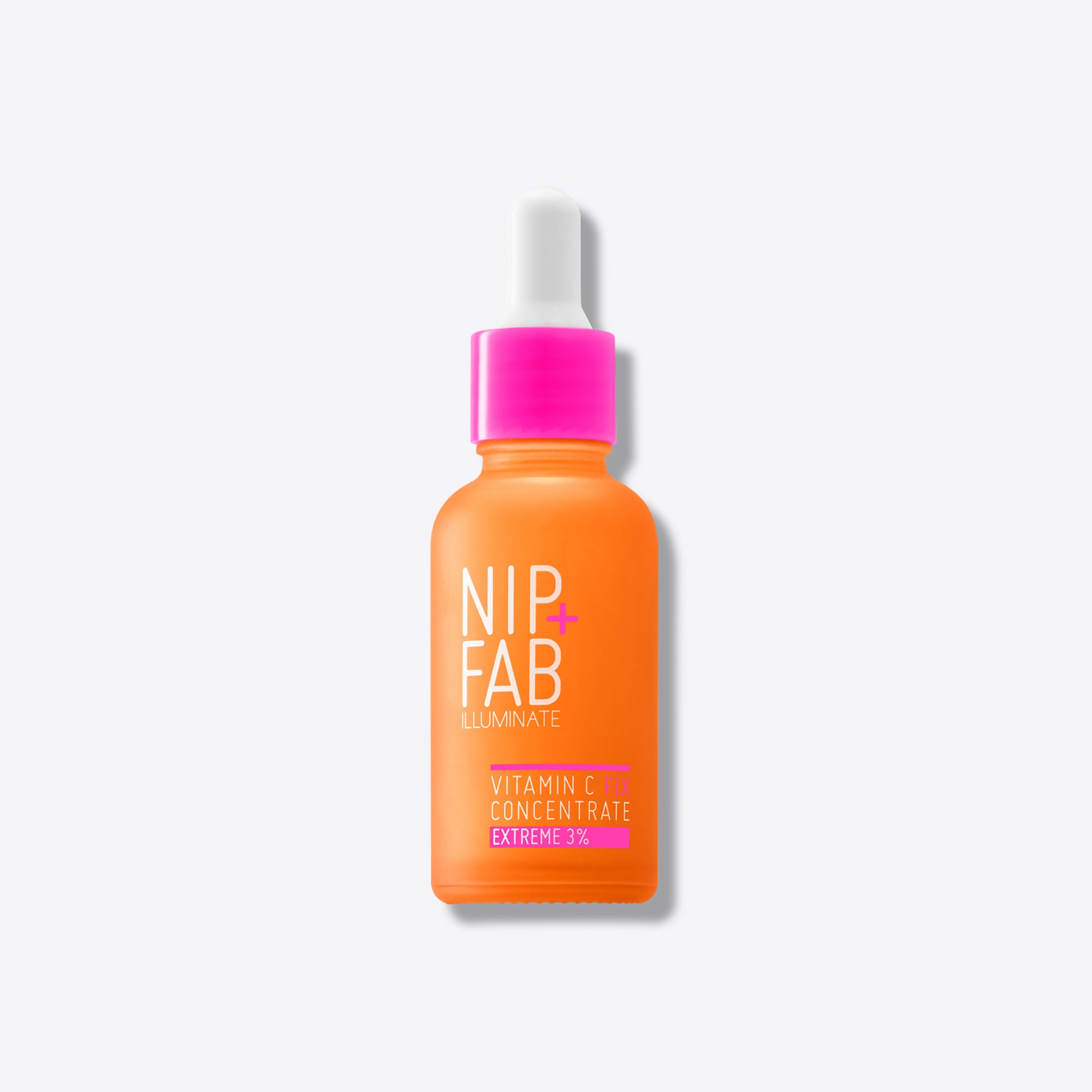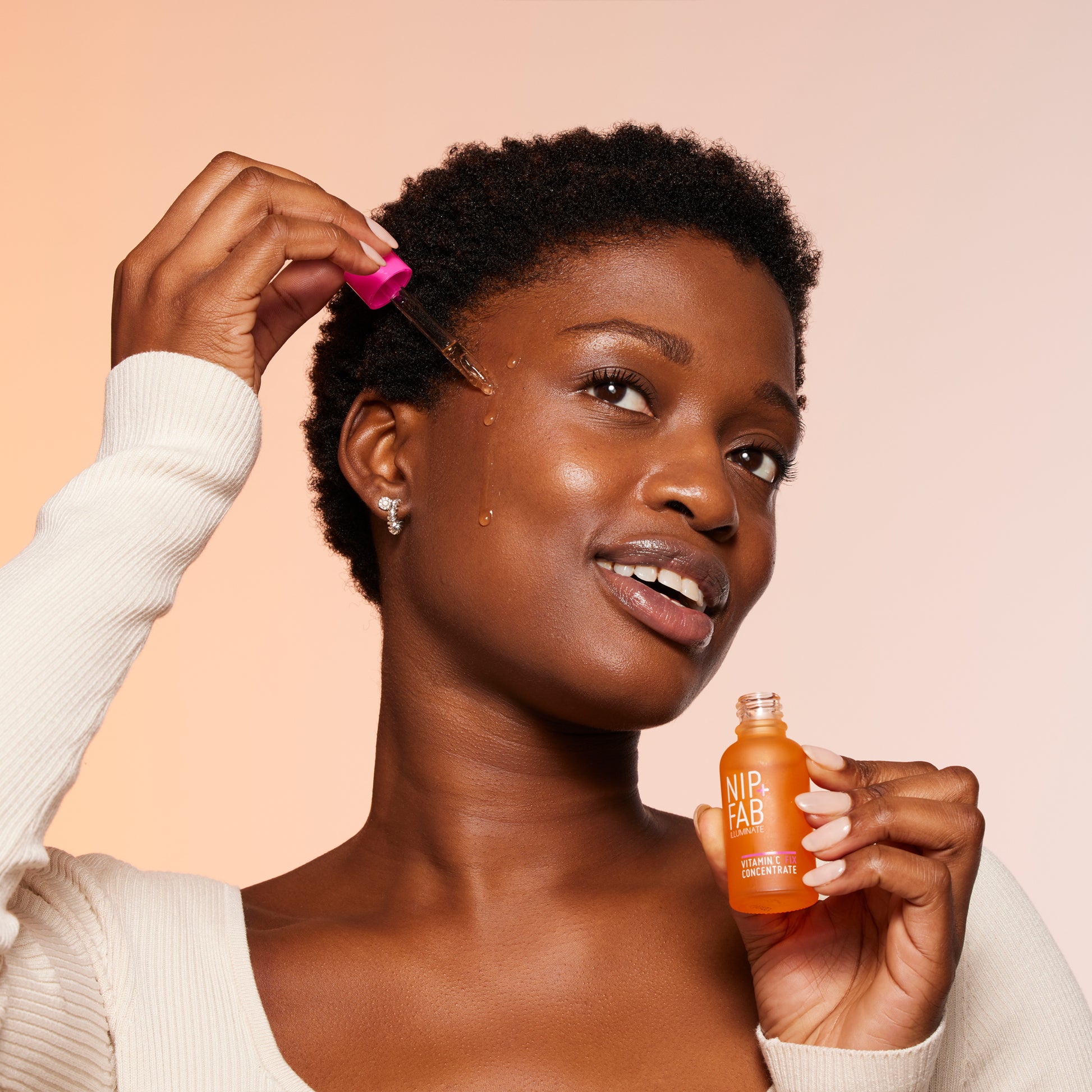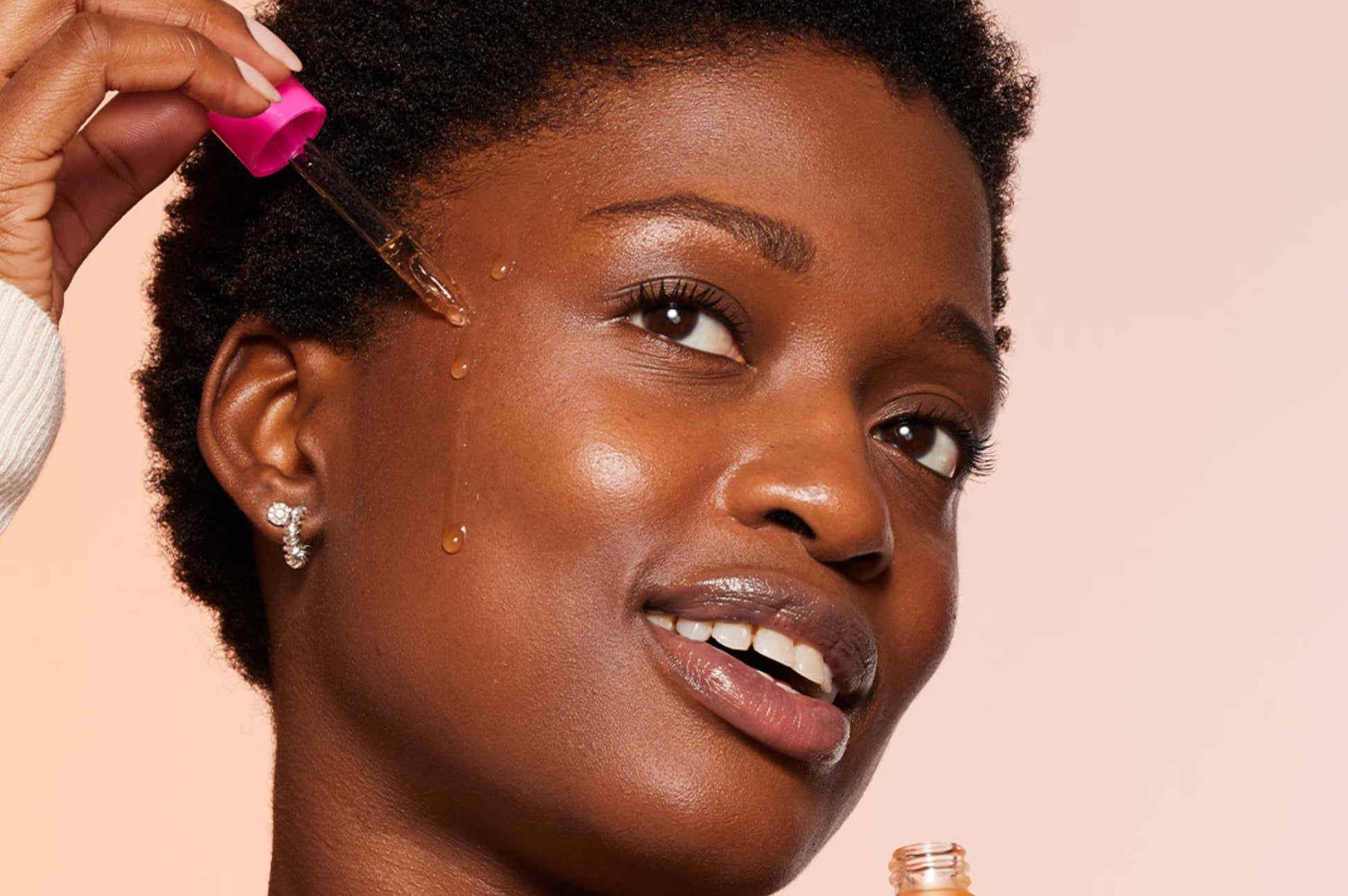


We’re often asked about the skincare benefits of vitamin C for acne. In this guide, we’ll answer your most frequently asked question; “does vitamin C help with acne?” as well as the overall benefits of vitamin C for skin.
We’ll also discuss the best serums and active ingredients to look out for when looking to treat and soothe acne and breakouts including the best vitamin C serum for acne scars. We also dig deeper into the contraindications around whether you can use hyaluronic acid with vitamin C in your skincare routine, too.
Looking for glowing skin, free of acne and acne scars? Read on.
It is advised to consult a dermatologist or healthcare professional before adding vitamin C skincare products to your routine if you are taking any oral or topical acne medications.
Table of contents:
Vitamin C is a natural component of healthy skin. The levels of Vitamin C in your skin are high when you are young but, as you get older, these levels naturally decrease. UV damage, unprotected sun exposure and pollution can further lessen vitamin C levels in skin, making it appear dull, uneven and less firm. The solution? To specifically introduce vitamin c into your skin through your skincare routine!
Vitamin C is a seriously powerful antioxidant and helps to fight free radical damage to skin, which is why it can be used to help reduce the appearance of acne. After suffering from a breakout, acne can leave you with scars and skin damage. Whilst vitamin C in skincare can improve hyperpigmentation and acne scars, more research is needed to decide whether vitamin C is the best choice for acne-prone skin.
Let’s look at the research:
It’s important to remember that acne is an inflammatory condition caused by blocked pores (painful under the skin spots and whiteheads, anyone?). Because acne can be worsened by environmental stressors, vitamin C might help with acne to a certain extent. Check out the best serums for acne.
Benefits of vitamin C for skin
One of our most frequently asked questions is “does vitamin C help skin?” There are tonnes of vitamin C skincare benefits which make it an ideal choice for incorporating into your skincare routine.
To understand the vitamin C skincare benefits, we need to understand how free radicals can damage skin.
There are three types of free radicals, but the main stressor to skin are reactive oxygen species (ROS). ROS can be found in UV sunlight, smog, cigarette smoke and other pollutants. They can damage the dermis (the middle layer) of skin which alters skin texture, colour and moisture barrier. ROS can also alter DNA and cell functioning.
Research shows one of the main benefits of vitamin C for skin is its ability to protect from the visible impacts of environmental stressors and free radicals. Aside from its superpower protective vitamin C in your skincare helps to
As you can tell, we love vitamin c, but keep in mind that despite its powers, vitamin C skincare products are exceptionally sensitive to air and light. If regularly exposed to air and sunlight, your vitamin C products can break down or oxidise - effectively losing its antioxidant properties and all benefits.
Top Tip: To make the most of the vitamin C skin benefits, make sure to purchase products that come in opaque or air-restrictive pump bottles.
Can you use vitamin c for acne scars?
After a spot or breakout, acne scars may develop. We recommend that you use a serum containing vitamin C for acne scars to increase the production of collagen which is vital for rebuilding healthy skin.
Applying a vitamin C serum to acne scars can also reduce the appearance of dark spots and hyperpigmentation without altering the natural colour of your skin. It works by obstructing an enzyme in skin called tyrosinase - the enzyme responsible for the production of your natural skin pigment (melanin).
In research by the Journal of Clinical and Aesthetic Dermatology, it was found that vitamin C paired with alpha-hydroxy acids (AHAs such as glycolic acid and lactic acid) was more effective in tackling hyperpigmentation. This is why we recommend pairing your vitamin C products with our Glycolic Fix range if acne scars, uneven skin tone and hyperpigmentation are your main concerns.
If you want to use a gentle vitamin C serum to help treat and soothe your acne and brighten your skin tone at the same time, we recommend the Vitamin C Fix Serum. The serum is stored in an opaque bottle with an airtight pump to prevent the formula from oxidising and deactivating.
For a stronger vitamin C serum for acne scars, the Vitamin C Fix Concentrate Extreme 3% is ideal. The more powerful concentrate works hard to improve uneven skin tone, whilst being as gentle on sensitive skin as possible. This serum is also stored in an opaque bottle to improve the longevity of the formula.
Suffering from breakouts or hormonal acne? Active ingredients such as salicylic acid, niacinamide and mandelic acid are well-researched and renowned for their ability to unclog pores, reduce blackheads and breakouts.
The best serums for acne include:
Yes, and it is recommended to use vitamin C and hyaluronic acid together! When combined, hyaluronic acid and vitamin C serums can become a potent formula to brighten skin tone and hydrate your skin.
Not all skincare ingredients can be mixed, but when you combine hyaluronic acid with vitamin C, they become even stronger! The two ingredients can provide immediate and lasting results for hydrated skin, improved skin brightness and visibly reduced wrinkles.
Hyaluronic acid as a skincare ingredient is well-researched for its hydrating capabilities. One hyaluronic acid molecule can hold 1,000 times its weight in water, making it perfect for dehydrated and dry skin. Its benefits include improving skin’s texture, elasticity and firmness. It can also decrease the appearance of wrinkles.
Top Tip: In order to use vitamin C and hyaluronic acid together, it’s important to know the correct order to apply your skincare products. It is advised to use products based on their formula consistency, applying from thinnest to thickest.
We recommend using our Dragon’s Blood Fix Cleansing Pads first to cleanse your pores and provide a boost of hydration, then follow with our Vitamin C Fix Serum or Vitamin C Fix Concentrate Extreme 3%. By using hyaluronic acid and vitamin C serum in this order, you will get the best results.
Vitamin C might not be the best ingredient in combating active acne or hormonal breakouts but it is an ideal choice for brightening any remaining acne scars or hyperpigmentation once your breakouts have calmed down.
For more immediate results for acne-prone skin, we recommend looking for products which contain salicylic acid, niacinamide, mandelic acid and charcoal. Products containing these potent ingredients are better-suited at unclogging pores and reducing breakouts.
It’s also important to remember to always apply an SPF moisturiser in the daytime. Whilst a vitamin C serum can protect against environmental stressors, it does not provide UVA/UVB coverage. We recommend using your vitamin C serum in the morning and following with our Post-Glycolic Fix Moisturiser SPF30 (it does not contain glycolic acid!) to create the perfect, glowing shield.
Are you ready for a juicy dose of vitamin C? Discover our Vitamin C Fix collection for a glowing, even complexion.
References
Your language is set to English
Uw taal is ingesteld op Nederlands
Votre langue est définie sur le français